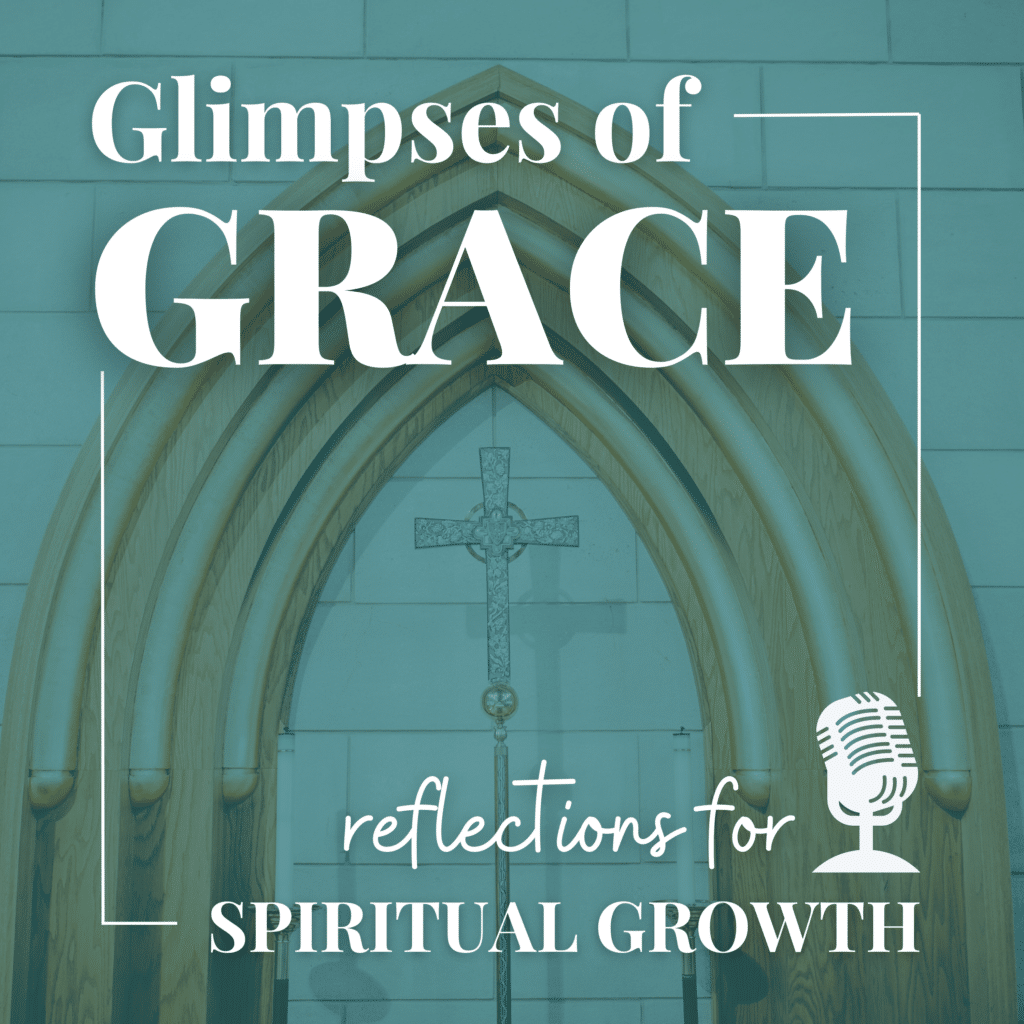Pause to Behold
In a world shaped by fear, power, and insecurity, Herod’s fear of a child born king contrasts with the magi’s journey of wonder. As they follow a star, the magi reveal the profound truth that God’s glory is found in the unexpected and ordinary. This Epiphany, we are invited to pause and behold, finding beauty and hope even in the midst of our brokenness.

The Glimpses of Grace podcast is a ministry of Grace Episcopal Church in Gainesville, Georgia. We are passionate about supporting the spiritual growth of souls, and we hope these sermons and conversations meet you where you are and enrich your soul as we all continue to make meaning in the world today.
Glimpses of Grace on Spotify
Transcript
Conflict. Fear. Insecurity.
Upon hearing the news of a child born king of the Jews,
Herod is terrified.
A ruler so desperate to preserve power.
A ruler who has built his kingdom on fear and control,
shaken by the mere mention of a child.
Herod’s terror is not just about a possible rival.
It’s the fear that his carefully crafted world might be undone.
His fear infects the city, bringing unrest and uncertainty.
(Fear has a way of expanding beyond its origins…
obstructing views… and shaping perspectives.)
Fear points to scarcity: it tells us that there is not enough to go around—
not enough power, not enough love, not enough hope—
so we must grasp for and cling to what we can.
We must have control.
But fear is not the only response to the unknown!
While Herod clings to power,
the magi travel by another path.
The magi, traveling under the vast expanse of the night sky,
seek not control but truth—
seeking light in a time of darkness, meaning in the midst of chaos.
And they follow a star.
Imagine the marvel of it, looking upward in a time when
the world below is dark and fractured…
to pause and gaze at the heavens.
The magi beheld beauty—and in that wonder, they were liberated.
Unlike Herod who acts out of worry,
the magi journey with worship in mind:
to worship, to pay homage, to bow down.
Three times the author references this idea of kneeling down
and showing reverence.
Herod is so filled with anxiety and paranoia
that he falsifies his intent to pay homage.
But, the magi travel despite his deception in order to give.
Herod is overcome with fear.
Upon seeing the child, the magi are overwhelmed with joy.
Herod receives no honor.
Yet, the bowing down of the magi
to the child
reveals to which power they submit.
Epiphany is a season of revealing,
a holy invitation to see the extraordinary breaking into the ordinary.
For the magi, the journey culminates in a moment of revelation:
a child, cradled in simplicity,
who is also King.
With gifts of gold, frankincense, and myrrh,
they reveal that the child is worthy of a precious metal fit for a king,
that a priestly ministry requires high-quality incense,
and that the medicinal qualities of myrrh point to life as a healer.
Their first steps on their journey began not with knowing, but with wonder—
seeing a star and getting curious.
Wonder is an act of courage. To wonder is to defy skepticism.
To wonder is to resist despair,
to resist the lie that nothing good can come from a broken world.
Wonder can rewrite even the most fearful of stories.
Think of the times when you’ve known the world to betray you—
when trust was broken, grief consumed, or violence was close to home.
And yet, even then, perhaps you paused and saw something beautiful:
the kindness of a stranger, the resilience of a loved one, the sunset.
To pause and behold is to say, “Even here, there is beauty.
Even now, there is hope.”
This is not naivety, it is faith.
The magi didn’t bring their gifts to Herod’s palace,
a place of worldly power.
They brought their best to a child born in simplicity.
The magi point to something profound:
beauty, truth, divinity are found not in places the world tells us to look
but in the unexpected, the ordinary, the vulnerable.
When we bring our best to God and to one another,
we affirm that beauty is from where we originated…
it’s what grounds us:
We are created in the image of God, who declared the world good, and we are called to create goodness in return.
What might it mean for us, this Epiphany,
to pause and look at the stars in our own lives?
To see God’s glory revealed in the unexpected,
to offer our best gifts not to the powerful but to the vulnerable?
What might it mean to let wonder be a liberation practice,
freeing us from the things we fear and
from the weariness that tells us nothing can change?
The star led the magi to Jesus, and they were overwhelmed with joy.
Their journey reminds us that the world is not beyond redemption.
Yes, there is pain, but there is also beauty—
truth breaking in like a single star in the night sky.
Pause and behold. Even here, in this moment, there is beauty.
Even now, there is hope.